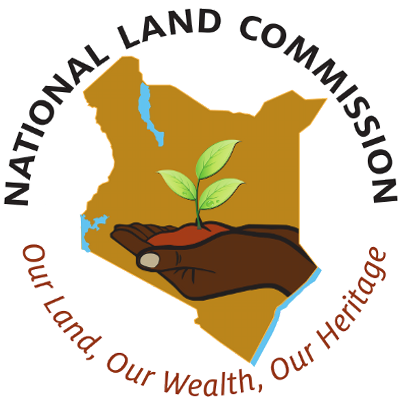The National Land Commission Chairperson Gershom Otachi and acting Chief Executive Officer Kabale Tache, today joined Lands, Housing, Public Works and Urban Development Cabinet Secretary Zechariah Njeru and his Principal Secretaries Generali Nixon Korir (Lands) and Joel Arumonong (Public Works) for a consultative meeting with members of Programme Advisory Committee (PAC) on Digital Land Governance Programme that was organised by Food and Agriculture Organization (FAO) at the Geospatial Data Centre (GDC) in Nairobi.
Speaking during the meeting Mr Otachi said that digitisation of land records is critical to the National and County governments as this improves the ease of doing business besides having proper land records.
The chairperson said the Commission remains committed to ensuring that Digital Land Governance Programme succeeds in achieving its intended objectives. He further stated that planning was a critical component of land governance and the need to emphasise supporting the counties to develop the County Spatial Plans and also implement it was key.
Mr Otachi noted that the country is currently facing enormous challenges related to climate change and Digital Land Governance Programme helps in confronting them.
“As we are all aware, Kenya is faced with acute food insecurity owing to prolonged drought situation due to climate change. Digital Land Governance Programme, therefore, has come at a better time and will go a long way in supporting the land sector to confront some of these challenges in the long term.” The chair said.
On her part, acting Chief Executive Officer Kabale Tache thanked the development partners for the support they given during the implementation of the previous Land Governance Programme.
The CEO enumerated the achievements the commission realised through the support, they include but not limited to capacity building of staff, development of the Strategic Plan 2021-2026 and its subsequent launch, development and subsequent publication of Large-Scale Land Acquisition Safeguards 2022, Research on the “Effects of Land Fragmentation on Land Use and Food Security in 13 Counties”, among others.
She said that the commission’s priority areas in Phase II include the development of an E-commission which will focus on public land management processes, the Haki kwa Ground legal system and the electronic records management system
Other priority areas are the mapping of ecologically sensitive areas in Kenya, finalisation of the Natural Resource Atlas, development of guidelines for Land Use Planning and Management plans, redress for Historical Land Injustices and Dispute Resolution Frameworks, improved and inclusive policy, legal and institutional frameworks
